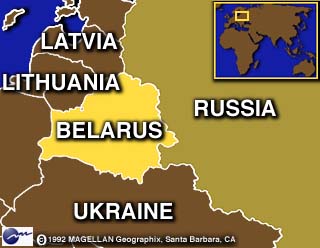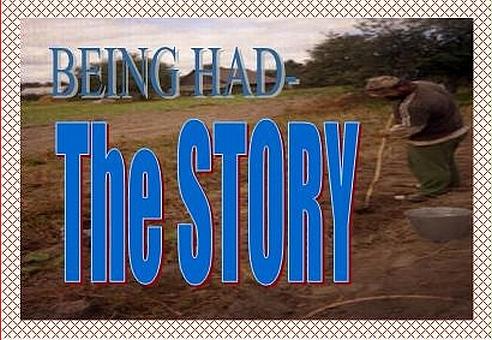The Belarus-Russia Union State
 |
Economic times were very hard in the 90's for independent Belarus. Average wages were lucky to see $2 or $3 a day and twice during the decade, the banks faltered and took all of the savings of its investors with it. The results of all of this were a breaking of people's communal ideologies and the beginning of a "sam sebya" -only for yourself-style of living. But of course because there were nowhere near the resources or opportunities available in the west, the result was a complete social catastrophe.
However, over the last several years, there has been a re-genesis in Belarus. Wages have come up, social services have become more dependable and the budgets for city infrastructures have grown to the point that there is something resembling competence and normal available to the eye. A lot of this has been attributed to the president's wanting to stay around for a third term but also because of the ability to sell natural gas abroad, which has brought actual money into the country for the first time since the conclusion of the Soviet Union. Yes, times are better for most people: There is economic stability to an extent and since pegging the Belarusian ruble to the dollar two years ago, though there is still inflation, the appearance of stability of the currency has also built consumer as well as national confidence. The results of all of these positive happenings were an 83% victory for Alexander Lukashenka and the re-establishment of a much desired Belarusian unity; appreciation of Belarusian nationalism has never been higher.
At this moment however, Belarus also seems absolutely and resolutely interested in merging to a large extent with Russia. And the question is whether or not this is the will of the people of Belarus now?
For sure there was a time when the desire to reconstruct the Soviet Union was absolutely on the minds of everyone as the sole answer to "The Problem". But now, with times seeming better and the possibility of that independent, self-sufficient Belarus, the image most attached to Lukashenka's re-election campaign, why should Belarus now wish to diminish its own independence?
Robert Meyer's Publiius Pundit page today has a remarkable article about Moscow that is really worth a read. Certainly, it seems as though Belarusians are not as interested in re-joining with Russia especially because of their obvious problems. Almost universally here it is agreed that Belarus functions much better than Russia; there is less corruption, the money is more dependable and the streets are generally safer. Workers who migrate to Russia for higher wages ALWAYS complain how the mafia creates problems, how there is corruption with the police and that if there is ever a sign of success, their deals are always renegotiated downward. And then there is the game of hardball which is still going on between Gazporm and Belarus over the cost that must be paid for Russian oil. Ukraine's capitulation aside, the deal has left a dirty taste in the mouths of Belarusians everywhere.
 |
However, there is also the thought that the only reason for such a merger now is that it would give Alexander Lukashenka the opertunity to become the first secretary of the second Soviet Union. And do not believe for a moment that the thought of such an entity is not a popular one. And this would especially be true should Ukraine, Georgia and all of the rest of the former soviet satellites agreed as well.
Lukashenka's speaking of a return to a bi-polar global political situation is a very popular notion in Belarus and this ideology is not only attached to anti-American sentiments. The feeling here is that if America can claim that its two party system of checks and balances works for them, why shouldn't the principal also apply to global politics? Certainly, there is much resentment towards the west because of the poverty and problems of the last decade and a half. Acquiescing to western desires did not turn out to be anything that the east expected, and therefore, they are no longer interested as last week's issues in Ukraine illustrate. Most people of the former Soviet Union thought that there would been more support and opportunity than there was during the glasnost and perestroika years; that there was nothing but slick opportunism and abuse from the west has also left people cold. And also there is the almost unanimous feeling amongst those who immigrated to the west that life at home was more real- except of course for the money.
In any case, Belarus is marching forward and preparing for winter. Whether that winter will be spent trying to redo the calculations of how the dollar relates to Russian rather than Belarusian rubble is yet to be seen. But in either case, the people here, just as they always have, with simply deal with it.
More soon…






















